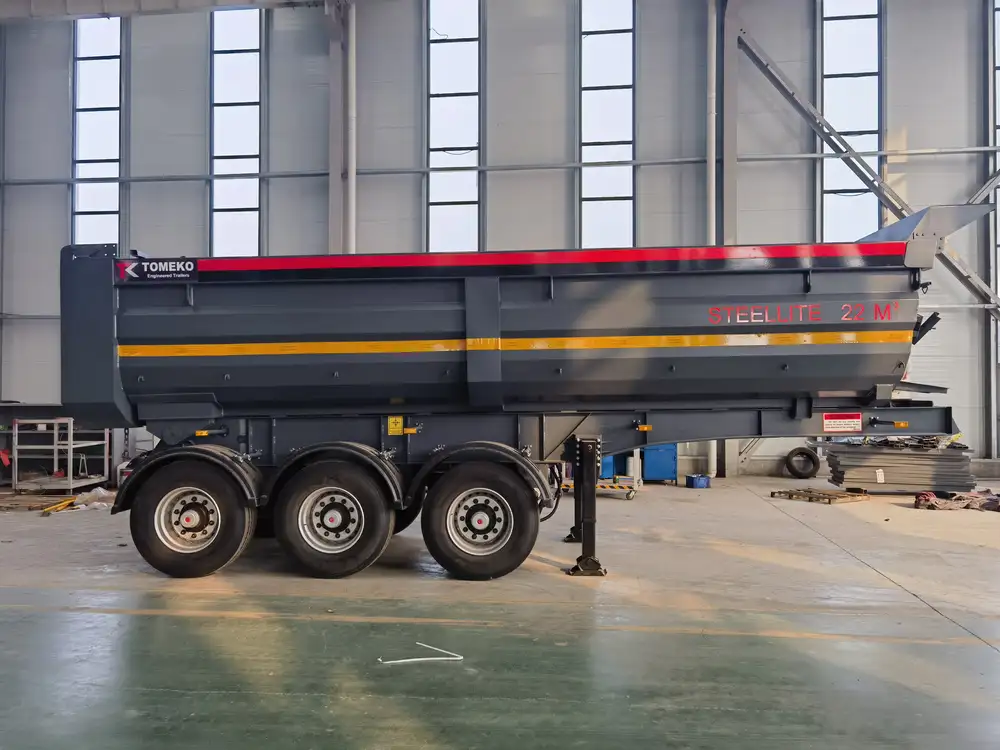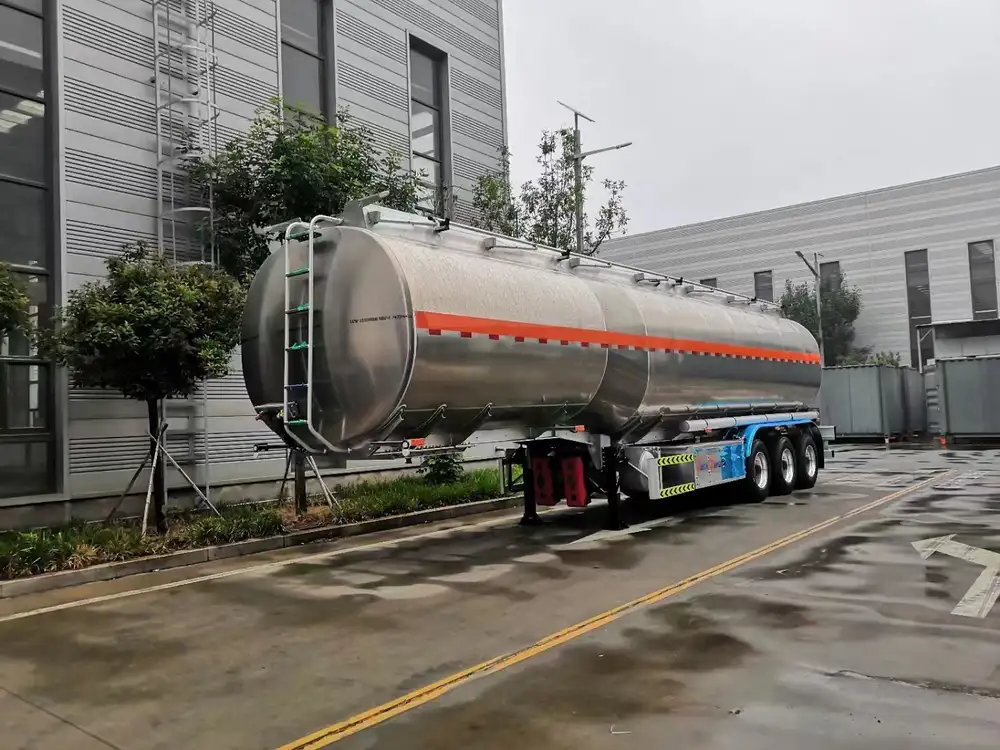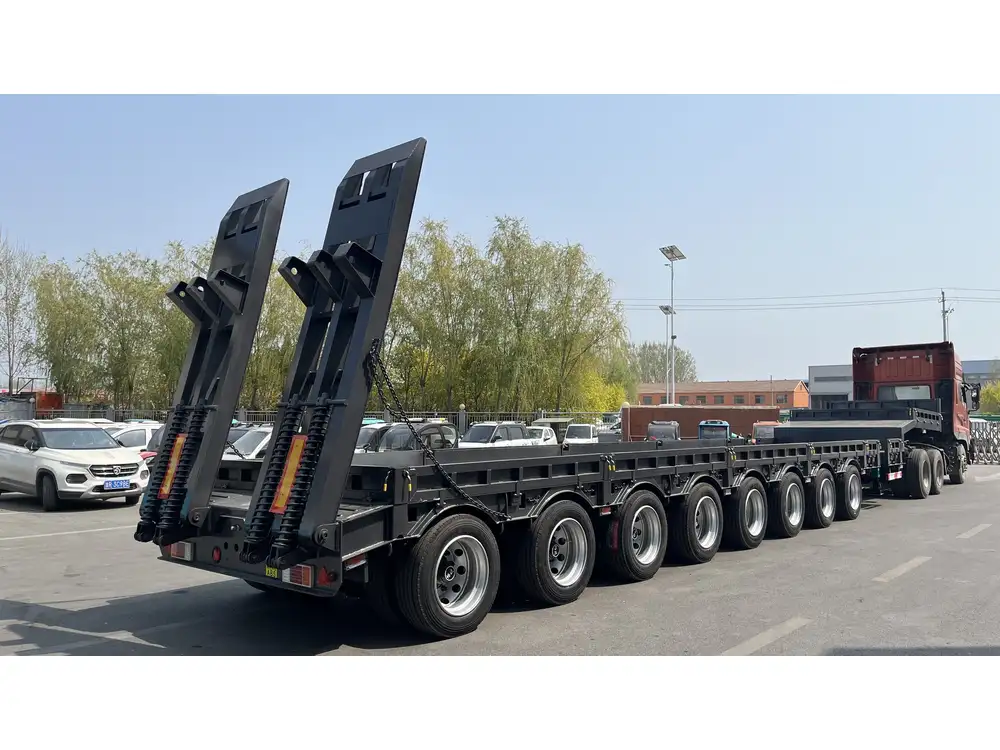The quest for the best semi-trailer is an intricate journey involving various considerations, including build quality, durability, cost-effectiveness, and manufacturer reputation. As transportation and logistics evolve, understanding the complexities behind semi-trailer manufacturing can significantly impact operational efficiency. In this article, we delve into the nuances of semi-trailer construction, analyzing different manufacturers, the types of semi-trailers available, and the factors that contribute to outstanding performance in this essential industry.
Understanding Semi-Trailer Types
Before determining who builds the best semi-trailer, it’s essential to explore the different types of semi-trailers available in the market. Each type has specific applications, construction materials, and features that cater to various industry needs. Here’s a comprehensive breakdown:
| Type | Description | Applications | Key Features |
|---|---|---|---|
| Dry Van | Enclosed trailers for basic freight. | General commodities, retail goods. | Weather-resistant, customizable designs. |
| Reefer | Refrigerated trailers for temperature-sensitive cargo. | Food, pharmaceuticals. | Insulated walls, integrated cooling systems. |
| Flatbed | Open trailers for oversized cargo. | Construction, heavy equipment. | Easy loading/unloading, versatile use. |
| tanker | Specialized trailers for liquid transportation. | Fuel, chemicals, food products. | Double-walled tanks for safety, specialized pumps. |
| Lowboy | Trailers designed for heavy loads, with a low deck height. | Heavy machinery, oversized equipment. | Strong structural integrity, low clearance. |
| Container | Designed to transport shipping containers. | Shipping, international trade. | Standardized sizes, crane-friendly design. |
Selecting the right semi-trailer type significantly impacts functionality and operations. Understanding the applications and key features will help identify manufacturers that excel in specific categories.
The Hallmarks of Quality Manufacturing
When assessing semi-trailer manufacturers, certain hallmarks signify superior quality. These factors influence both the longevity of the product and its efficiency in real-world applications:

1. Material Excellence
The foundation of a great semi-trailer lies in the materials used in its construction. High-grade steel, aluminum, and composite materials are often utilized to enhance structural integrity and reduce weight.
- Steel: Offers strength and durability but can be heavier.
- Aluminum: Lightweight, rust-resistant, and often preferred for fuel efficiency.
- Composites: Increasingly used for their lightweight properties and resistance to environmental degradation.
2. Advanced Manufacturing Techniques
Sustainable and efficient manufacturing practices yield high-quality semi-trailers. Techniques such as modular production and automated welding contribute to precision and consistency. Moreover, rigorous testing procedures—including stress tests and road tests—ensure that trails meet safety and performance standards.
3. Customization Options
A manufacturer that offers customization allows businesses to tailor semi-trailers according to their specific needs. Flexibility in design can significantly enhance functionality, allowing operators to manage unique cargo with ease.

4. Comprehensive Warranty and Service Support
A robust warranty reflects a manufacturer’s confidence in their product. Companies that provide extensive service support, including maintenance programs and readily available parts, will also attract more discerning customers who value ongoing operational efficiency.
Leading Semi-Trailer Manufacturers
With various manufacturers boasting unique strengths, understanding who leads the industry is crucial for potential buyers. Below are some of the most reputable semi-trailer manufacturers, recognized for their commitment to quality, innovation, and customer satisfaction.
1. Great Dane Trailers
As one of the oldest and largest semi-trailer manufacturers in North America, Great Dane Trailers is synonymous with durability. They offer a wide range of trailers, including dry vans and refrigerated units. Their use of advanced materials, combined with a focus on aerodynamics, ensures fuel efficiency and robust performance. Great Dane’s commitment to customer service through specialized training and parts availability solidifies its reputation.
Key Innovations:
- Advanced aerodynamics improve fuel economy.
- Customizable options available for various industries.

2. Wabash National Corporation
Wabash National is recognized for its pioneering work in composite trailer manufacturing. The company emphasizes lightweight yet robust designs which enhance fuel savings and payload capacity. Their products range from dry vans to tankers and they are continuously innovating to meet environmental standards.
Key Innovations:
- The use of carbon composite materials.
- Patented rail and thermoplastic skin designs that improve durability.
3. Utility Trailer Manufacturing Company
Utility Trailer Manufacturing Company is renowned for its refrigerated trailers and dry vans. Known for their construction quality, they offer several innovative features that raise the bar in terms of efficiency and safety.
Key Innovations:
- Advanced insulation to maintain consistent temperatures.
- Multiple hinge designs allowing for easy access and reliable operation.
4. Trailmobile
With a legacy dating back to the 19th century, Trailmobile has embraced modern manufacturing techniques while retaining its focus on classic construction values. They are particularly noted for their truck bodies and flatbed trailers, catering to various industries, including agriculture and construction.
Key Innovations:
- Custom engineering solutions for diverse applications.
- A strong focus on safety features and load securement systems.

5. Dorsey Trailers
Dorsey Trailers is noted for its broad selection of flatbed trailers. With a focus on strength-to-weight ratios, Dorsey provides outstanding load capacity without compromising on maneuverability. They also have a commitment to sustainability, integrating eco-friendly practices into their manufacturing processes.
Key Innovations:
- Lightweight materials for enhanced payload capacity.
- Durable finishes designed to endure tough working conditions.
Factors to Consider When Choosing a Semi-Trailer Manufacturer
Identifying the right manufacturer is complex and requires careful consideration of various aspects. Here are some pivotal factors to contemplate:
Performance and Reliability
- Evaluate performance metrics reported by users through testimonials and reviews. Consider reliability under different operational conditions to find the best matching manufacturer for your needs.

Total Cost of Ownership
- When calculating the cost of a semi-trailer, consider not only the purchase price but also maintenance costs, fuel efficiency, and resale value.
Customer Support and Aftercare
- Investigate the reputation of manufacturers for after-sales support. Prompt access to replacement parts and service can be invaluable for minimizing operational downtime.
Innovation and Technology Integration
- Manufacturers investing in cutting-edge technology—like smart trailers with telematics—can offer additional operational efficiency and enhanced safety features.

FAQs About Semi-Trailer Manufacturing
1. What is the average lifespan of a semi-trailer?
Semi-trailers typically last 10 to 15 years, depending on usage and maintenance. Regular inspections and proper care can extend their life.
2. How can I improve the longevity of my semi-trailer?
Regular maintenance, such as checking brakes, tires, and structural integrity, can significantly improve the longevity of a semi-trailer. Keeping it clean and adequately storing it when not in use also helps.

3. Are customized semi-trailers more expensive?
Yes, customized semi-trailers often come at a premium due to tailored features. However, the increased efficiency and suitability for specific tasks can justify the investment.
4. What safety features should I look for in a semi-trailer?
Key safety features to consider include anti-lock braking systems (ABS), reflective tape for visibility, load securement systems, and durable construction designed to withstand impacts.
Conclusion
Determining who builds the best semi-trailer ultimately depends on specific business needs and operational requirements. By carefully weighing the quality of materials, innovative manufacturing techniques, and after-sales support, businesses can make informed decisions that will significantly impact their operational efficiency and long-term success.
Leading manufacturers such as Great Dane Trailers, Wabash National, and Utility Trailer provide a plethora of options tailored to various industry needs. Through thoughtful consideration and analysis, we aim to equip potential buyers with the knowledge and confidence needed to choose the most suitable semi-trailer for their operations.



